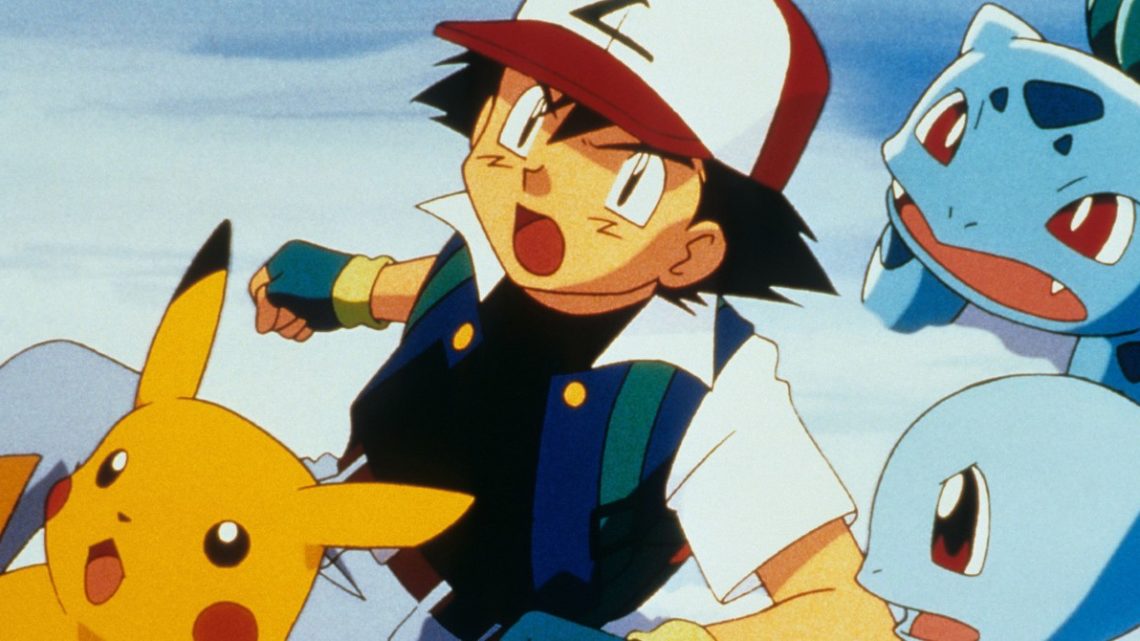
Pokmon Home Is Reuniting Joyful Fans With Long-Lost Monsters
February 19, 2020At a cozy party in 2014, Case Marsteller caught a rare, shiny Honedge Pokémon in Pokémon X on her Nintendo 3DS. It was a precious moment, made significantly more so after a close friend, who was playing Pokémon X alongside her at the party, passed away shortly after. It was the last time she would see him, but Marstellar would have her Honedge to remember him by.
Two years later, someone swiped that 3DS from her. Marsteller, 26, was heartbroken. The handheld console contained not only her Honedge, but her entire Pokémon Bank, which housed 900 Pokémon she’d held onto since 2004’s Pokémon Ruby and Pokémon Sapphire. Marsteller was sure that her pocket monster menagerie was gone forever until Wednesday, when she signed up for Pokémon Home, a cloud service that consolidates Pokémon from a dozen games across several Nintendo consoles. After four years, she was finally reunited with her Honedge.
“Finding out I was still able to bring in my Pokémon from Bank without my lost 3DS nearly brought me to tears because I was able to have this memento of my friend again,” she says.
Marsteller is one of several fans who have had emotional surprise reunions with lost Pokémon this week in Pokémon Home. The service, which costs three dollars a month or $16 annually, has especially benefited Pokémon fans who lost their 3DS—and the Pokémon it contained—or stopped paying for Pokémon Bank, a similar cloud service that started in 2014.
“It almost felt like a long lost pet had been found again,” said Alex Grusin, 29, who lost his 3DS on a train five years ago.
Boomers collected baseball cards and Gen Xers collected action figures. Millennials grew up instead with digital objects of nostalgia, and not so easily preserved in plastic cases or cardboard boxes. As old consoles become obsolete and old games become old news, gamers fall out of touch with their digital pets and the memories they shared. It’s unlikely that a 30-year-old would fire up their 22-year-old Game Boy Color to give their first Pikachu a little attention. Countless Pokémon have been lost to moving sales and broken consoles. And the majority of Pokémon’s history lies before cloud ubiquity; once the hardware disappeared, so did the Pokémon.
While cross-console trading has always been a feature of the Pokémon games, untethering the pocket monsters from consoles and game generations—as well as reviving them from the dead—has made them sort of “living” collectables. Pokémon Home reconnects owners not just with Pokémon but with the life events they’re inextricably linked to.
Case Marsteller’s Pokémon Home Pokédex is a time capsule. There’s “Fluffy,” the Gyrados from 2004’s Pokémon Fire Red; back before it evolved, when it was just a Magikarp, Marsteller had actually asked her sister to name “Floppy.” There are Pokémon named after shows she’d liked growing up, like the Stoutland “Jake” (Adventure Time) or “Mordecai” the Archeops (Regular Show). She’s got Pokémon traded from exes, from back-in-the-day friends she’s lost touch with. She has a Jolteon she received attending the 2010 Pokémon National Championships, a necessary icebreaker for the shy teen trying to make conversation with strangers.
“I couldn't put a price on the joy of finding out I was able to import the hundreds of Pokémon from my 3DS I lost almost half a decade ago, but $1.50-$3 a month seems worth it to me,” says Marsteller.
When Andrew Pert, 28, fired up Pokémon Home—after not paying for Pokémon Bank for years and losing his 3DS—a 450-strong Pokédex awaited him. He found his shiny Dragonite “Icarus” back from Pokémon Black, which he describes as his “pride and joy” as a competitive asset. The shiny Celebi “Miss” was named for and caught by his ex when they were both at the height of their Pokémon fandom. Then there’s the Serperior “Dave,” Pert says, “named after a good friend who unfortunately passed away around the time of those games release. It means a lot to have him back again!”
Pokémon games have always encouraged this sort of investment, even before there was any real infrastructure to keep Pokémon alive past the expiration date of their consoles or cartridges. Those efforts have gradually escalated, to the point that in the recently released Pokémon Sword and Pokémon Shield you can even tease your pocket monsters with pet toys or play fetch.
Despite this, there’s apparently little research on why people get so attached to their Pokémon. Dr. Emory Daniel, a professor in Appalachian State University’s communications department, studies gaming and parasocial relationships—when someone fosters a one-sided emotional relationship with something or someone unaware they exist—and believes that there are strong reasons outside of gameplay that Pokémon owners form those bonds.
Daniel recalled a Growlith he’d named after his dog when he was a kid. It was how he’d stayed connected to his pet when he was traveling. “Through nostalgia, people often create such strong relationships with digital avatars (e.g. Pokémon) that it might be difficult to abandon the narrative created for them,” he says. “It may be a reason why people want to remove denial by keeping them in their lives through a different medium like Pokémon Home.”
Parasocial relationships aren’t specifically a function of digital objects. People cried when M*A*S*H killed off Henry Blake in 1975. It’s common for people to mourn the death of a celebrity they’ve never met. Usually, though, we move on.
“We’re finding more and more creative ways to keep these characters in our lives. We’re doing a much better job of it,” says Daniel, citing the behemoth 24-year-old media empire that is Pokémon.
Those happy reunions could also prove seriously lucrative for Nintendo and The Pokémon Company—companies known for just selling the games, the card game, and various toy accouterments. Pokémon Home users can get a free month of Pokémon Bank to revive their old pets from games past, but must pay $3 a month to do so. (Pokémon Home has a free option as well, but does not let players transfer from Pokémon Bank.) Nobody interviewed minded the fee; it was worth it to them to keep their pets on life support.
“Pokémon has always been a business,” says Grusin. He wonders, though, what will happen as Pokémon branches further into augmented reality, as with Pokémon Go, presumably forging even deeper bonds. "The idea of a monthly subscription to hang out with my cat does not sound ideal," Grusin says.
Pokémon may not be living creatures, but they are tied to living memories. Players animate them in ways both empowered by the game and outside the bounds of play. For longtime fans, scrolling through Pokémon Home’s Pokédex might feel more like browsing a scrapbook than a zoo of digital pets.
“Although I miss the nostalgia of opening my binder of cards, I know in this day and age my digital friends may be with me forever,” says Grusin. “Who knows, I may pass them down one day to my kids. Then later their kids. My great-great-grandchild could be battling with my Raichu some day in the future.”
Read more: http://www.wired.com/

